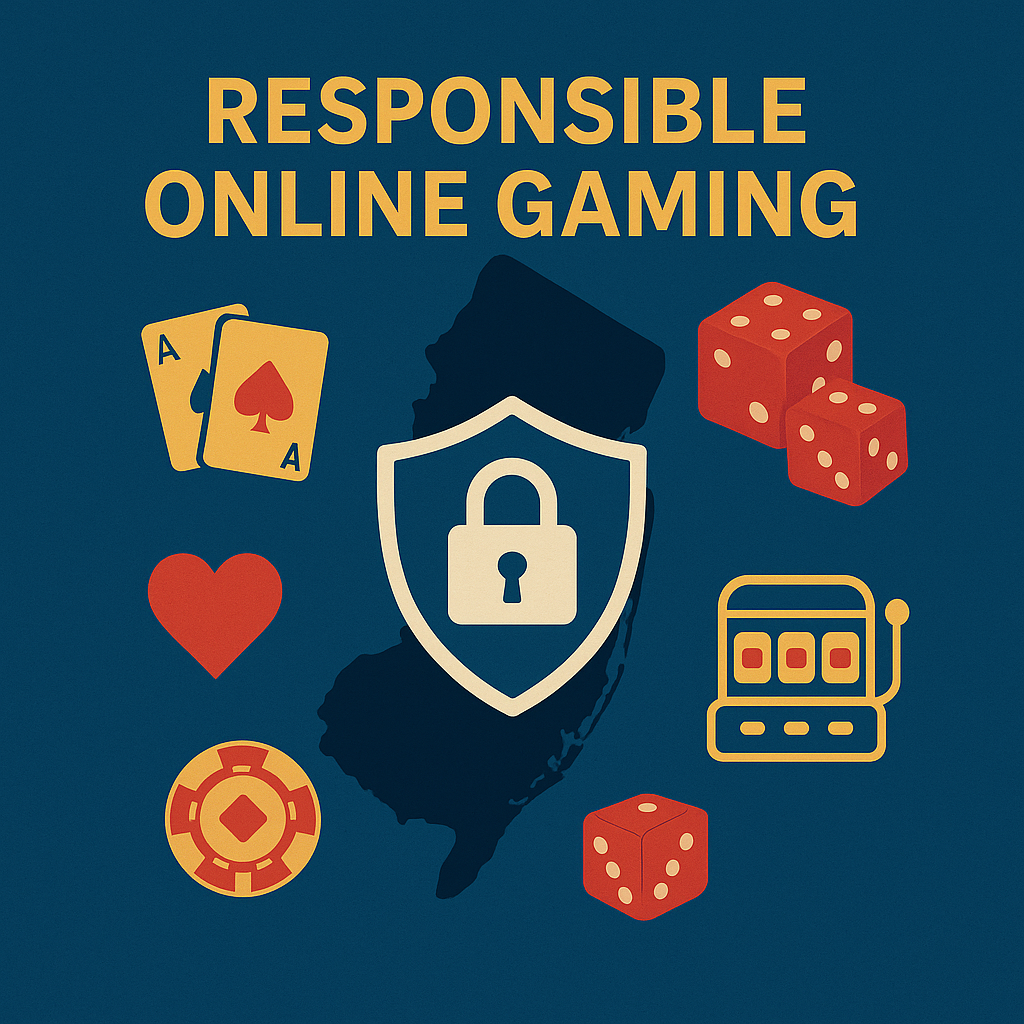Insights < BACK TO ALL INSIGHTS
R-E-S-P-O-N-S-I-B-I-L-I-T-Y! Find out what it means in New Jersey
R-E-S-P-O-N-S-I-B-I-L-I-T-Y! Find out what it means in New Jersey
By: Sara Dalsheim
Last week New Jersey published and proposed new Internet and Mobile Gaming Responsible Gaming regulations (57 New Jersey Register 2230(a)). The proposed regulations create new standards and definitions relating to responsible gaming. The regulations are available for public comment until November 14, 2025. During the iDEA Growth panel discussion on “Proactive Player Protection: Making Responsible Gaming the New Normal” on September 16th New Jersey Department of Gaming Enforcement (NJDGE) Deputy Attorney General, Jamie McKelvey, stated that the state has been working with industry on best practices for years.[1]
The proposed regulations require each online operator to designate one or more “responsible gaming leads” (the “RG Lead(s)”), who are to be supported by responsible gaming staff. Previously operators were only required to maintain RG staff without any standardization as to when patrons require intervention. The RG Lead(s) are specifically dedicated to identifying at-risk patrons, maintaining a list of such patrons, providing resources to such patrons, and ensuring responsible gaming practices are properly effectuated. Through the proposed regulations the RG Leads are guided with precise requirements on what constitutes problem gambling and ensuring assistance to those who request or desire. The RG Lead is also responsible for ensuring at-risk patrons are provided with responsible gaming information and resources, and such individuals are shielded from certain gaming marketing campaigns and promotions.
The proposed regulations also set forth 12 responsible gaming triggers for RG Leads to evaluate to determine when intervention and a due diligence review are necessary. The most prevalent triggers are:
- patron deposits exceed $10,000 over a period of 24 hours;
- patron deposits exceed $100,000 over a period of 90 days;
- patron accesses the self-exclusion request page without completing the self-exclusion process 3 times or more over a period of 30 days;
- there are three consecutive increases to any responsible gaming limits without decreases over a period of 7 days;
- patron’s time spent on their account increases by 50% or more in one week compared to time spent in the prior two weeks; and
- patron ends two or more gaming sessions in the same week with a balance of less than $1.00 remaining in their account).
Additionally, the RG triggering system must encompass the proposed regulation’s enumerated 3-phase processes for intervention. In phase 1, the operator is to contact the patron to provide information regarding the availability of RG resources. In phase 2, the operator must require the patron to view in its entirety a video tutorial regarding responsible gaming and problem gaming features offered by the operator to proceed with play on the platform. Lastly, in phase 3, the RG Lead must contact the patron directly to discuss possible problem gaming behavior and highlight all responsible gaming options and resources offered by the operator. The RG Lead must also provide the patron with contact information for a responsible gaming professional, along with providing their own contact information so that the patron is able to reach them directly for any further guidance. Operators are to advance their patrons to the next phase of intervention if the due diligence review or specific triggers warrant a more advanced response.
At the most severe intervention phase, the RG Lead may even refer the patron to emergency medical and/or mental health professionals or to law enforcement if they determine that the patron may be at risk of harm to themselves or other. If the RG Lead is unable to reach the patron then they must leave a voicemail. If after three attempts, the RG Lead is unable to reach the patron, then they must notify the patron via email that their account is temporarily suspended until they speak to the RG Lead and items required for phase 3 of intervention are completed. After phase 3, if the RG Lead determines that the patron is exhibiting signs of problem gaming then the patron’s account must be closed and the patron referred to problem gambling resources.
These proposed regulations are the first of their kind in the burgeoning online gaming industry. It is no surprise that such standards and efforts have come from New Jersey – the leader in compliance for many other states in the industry. Other states have tried to set forth responsible gaming requirements, without comment or contribution from the industry, and many argue the resulting regulations are overly cumbersome and missing the mark, in terms of intended impact. If enacted, the impact of New Jersey’s regulations is unclear. However, they are a worthwhile, realistic, and noninvasive measure for online operators to enact to curtail problem gambling.
Such regulatory efforts further emphasize the need and positive impact of regulating the gaming industry. The regulated industry (i.e., stakeholders and regulators) is constantly working together to provide a safe environment for the public to enjoy online gaming, as evidenced by these recent efforts in New Jersey. The same cannot be said for the ever-present unregulated black market, who have no responsible gaming tools or requirements and may even prey on the vulnerable.
[1] Panel discussion found at: https://www.youtube.com/watch?v=avCoWj7wy0w.





